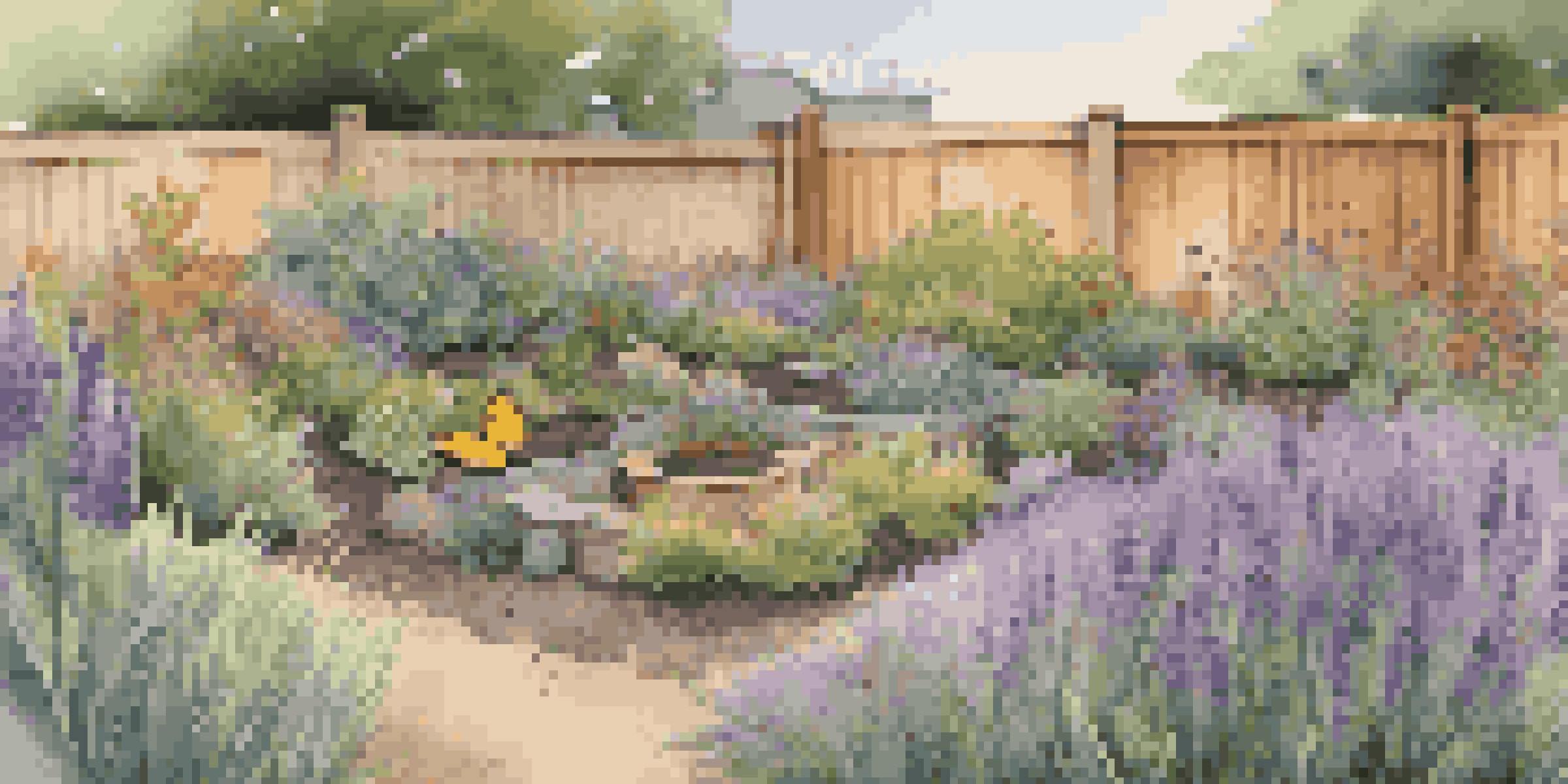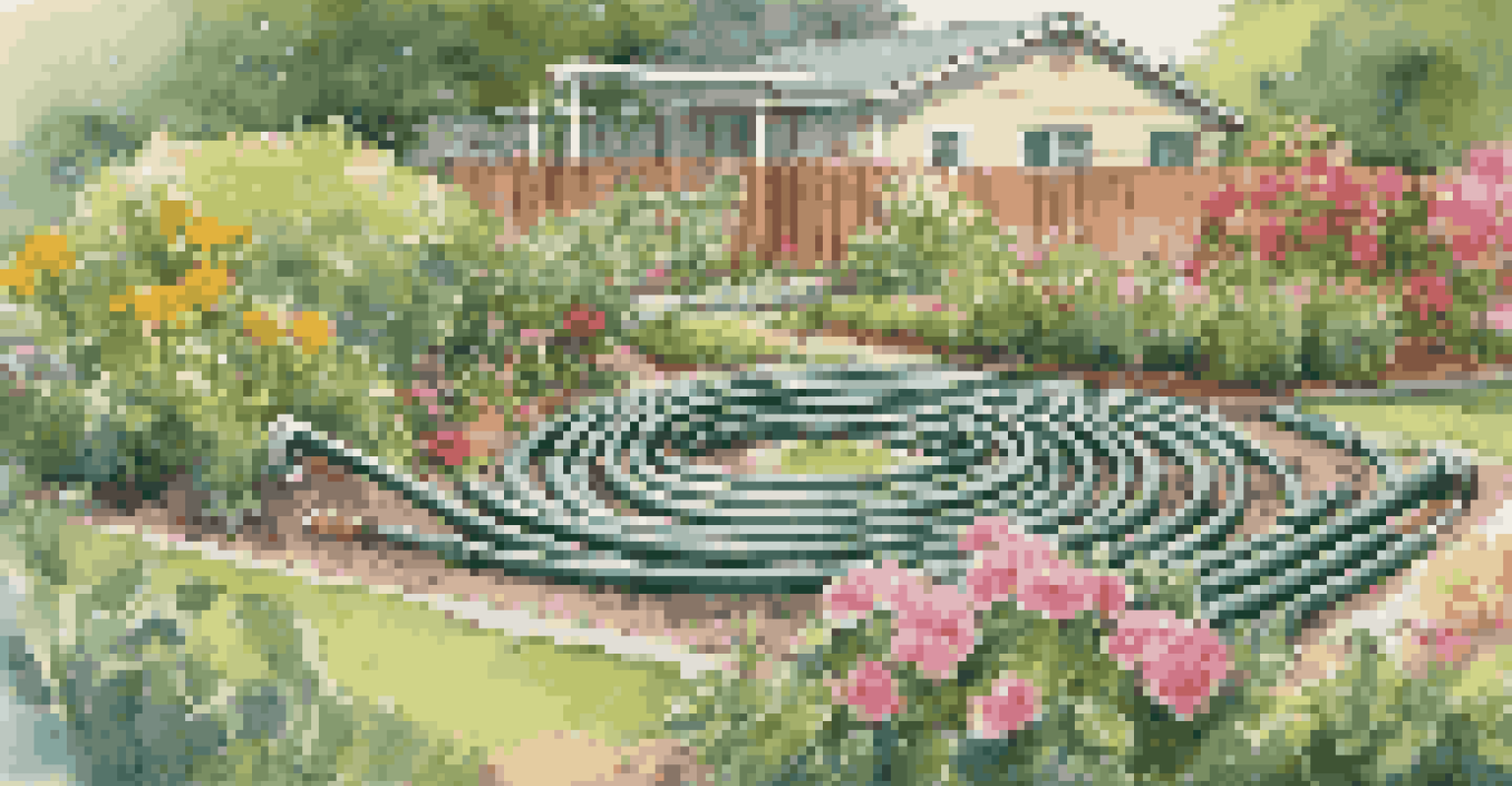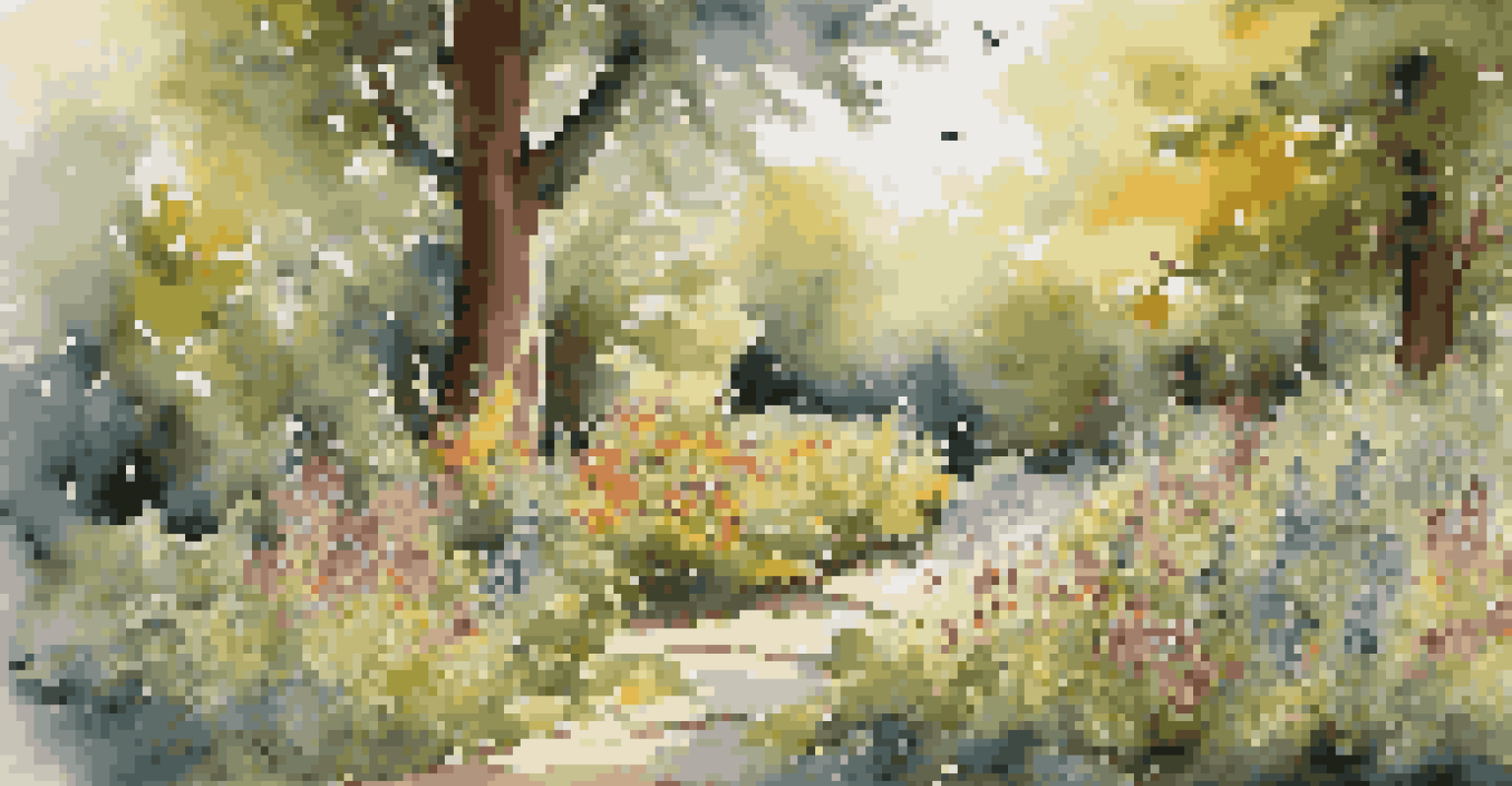How to Build a Sustainable Garden with Minimal Effort

Understanding the Basics of a Sustainable Garden
A sustainable garden is designed to thrive with minimal human intervention. This means creating an ecosystem where plants, animals, and soil work together naturally. Think of it like a self-sustaining community where everything has its role, from pollinators to soil microbes.
The greatest threat to our planet is the belief that someone else will save it.
To start, you don’t need a large space; even a small balcony can accommodate a sustainable garden. The key is to choose plants that are well-suited for your climate and soil conditions. Native plants are often the best choice, as they require less water and maintenance.
By understanding the principles of sustainability, you can lay a strong foundation for your garden. Emphasizing biodiversity, reducing waste, and using natural resources wisely will set you on the path to a flourishing garden with minimal effort.
Choosing the Right Plants for Low Maintenance
Selecting the right plants is crucial for a sustainable garden that requires little upkeep. Opt for perennials, which come back year after year, reducing the need for replanting. Some great options include lavender, ornamental grasses, and native wildflowers.

Consider incorporating drought-resistant plants as well. These plants thrive in dry conditions, helping you save on water and effort. Succulents and certain herbs, like rosemary and thyme, are excellent choices here.
Create a Self-Sustaining Ecosystem
A sustainable garden thrives on minimal human intervention by fostering a balanced ecosystem of plants, animals, and soil.
Always take into account your local climate when choosing plants. By selecting varieties that are naturally adapted to your environment, you’ll create a garden that not only flourishes but also demands less attention and resources over time.
Utilizing Compost for Healthy Soil Naturally
Composting is an easy and effective way to enrich your garden soil without chemicals. By recycling kitchen scraps and yard waste, you can create a nutrient-rich soil amendment that will support your plants. Think of compost as the 'superfood' for your garden.
Nature does not hurry, yet everything is accomplished.
To get started, set up a compost bin in a convenient location. You can throw in vegetable peels, coffee grounds, and even shredded paper. Just remember to balance green materials (like fruit scraps) with brown materials (like dry leaves) for optimal decomposition.
Over time, your compost will break down into dark, crumbly soil that can be mixed into your garden beds. This not only improves soil health but also reduces waste, making your garden more sustainable with minimal effort.
Implementing Mulching Techniques for Water Conservation
Mulching is a fantastic way to conserve moisture in your garden while also reducing weeds. By applying a layer of organic material like bark, straw, or even grass clippings, you create a protective barrier around your plants. This barrier helps retain soil moisture, meaning less frequent watering.
Moreover, as the mulch breaks down over time, it adds organic matter to the soil, enhancing its structure and fertility. This creates a win-win situation: less watering and improved soil health with little maintenance on your part.
Choose Low-Maintenance Plants
Selecting native and drought-resistant plants reduces upkeep, allowing your garden to flourish with less effort.
When applying mulch, aim for a thickness of about 2-4 inches around your plants. Just be cautious not to pile it against the stems, as this can lead to rot. With this simple technique, you’ll find your garden thriving with minimal effort.
Creating a Watering System to Reduce Labor
Setting up an efficient watering system can save you time and effort in the long run. Drip irrigation is an excellent choice for a sustainable garden, delivering water directly to the roots where it's needed most. This method minimizes evaporation and runoff, making your watering more efficient.
If you prefer a more hands-on approach, consider using soaker hoses. These hoses release water slowly along their length, providing consistent moisture to your plants without the need for daily watering.
You can also collect rainwater in barrels to use during dry spells. This not only conserves water but also reduces your water bills. With a little initial setup, you can enjoy a garden that thrives while you sit back and relax.
Encouraging Beneficial Wildlife in Your Garden
Welcoming beneficial wildlife into your garden can help maintain balance and reduce pests naturally. Birds, bees, and butterflies all play vital roles in pollination and pest control. Consider planting a variety of flowers and shrubs that attract these helpful creatures.
You can also provide habitats for beneficial insects by incorporating native plants and leaving some areas of your garden a bit wild. Piles of leaves or logs can provide shelter for insects, which in turn will help manage pests naturally.
Utilize Compost for Soil Health
Composting kitchen scraps enriches soil naturally, supporting plant growth while minimizing waste.
By fostering a friendly environment for wildlife, you're creating a mini-ecosystem that thrives on minimal intervention. This not only enhances your garden's health but also adds beauty and life to your outdoor space.
Maintaining Your Garden with Minimal Effort
Regular maintenance can seem daunting, but with a sustainable approach, it can be manageable. Start by scheduling a quick weekly check-in to ensure everything is thriving. This doesn't have to be an extensive task—just a few minutes to observe and tend to any immediate needs.
Implementing practices like companion planting can also minimize pest issues and encourage healthy growth with minimal effort. For example, planting marigolds alongside vegetables can deter pests naturally, reducing the need for chemical interventions.

Finally, embrace the philosophy of 'less is more.' By focusing on a few key tasks and allowing nature to do its work, you'll find that maintaining your sustainable garden becomes an enjoyable and rewarding experience.